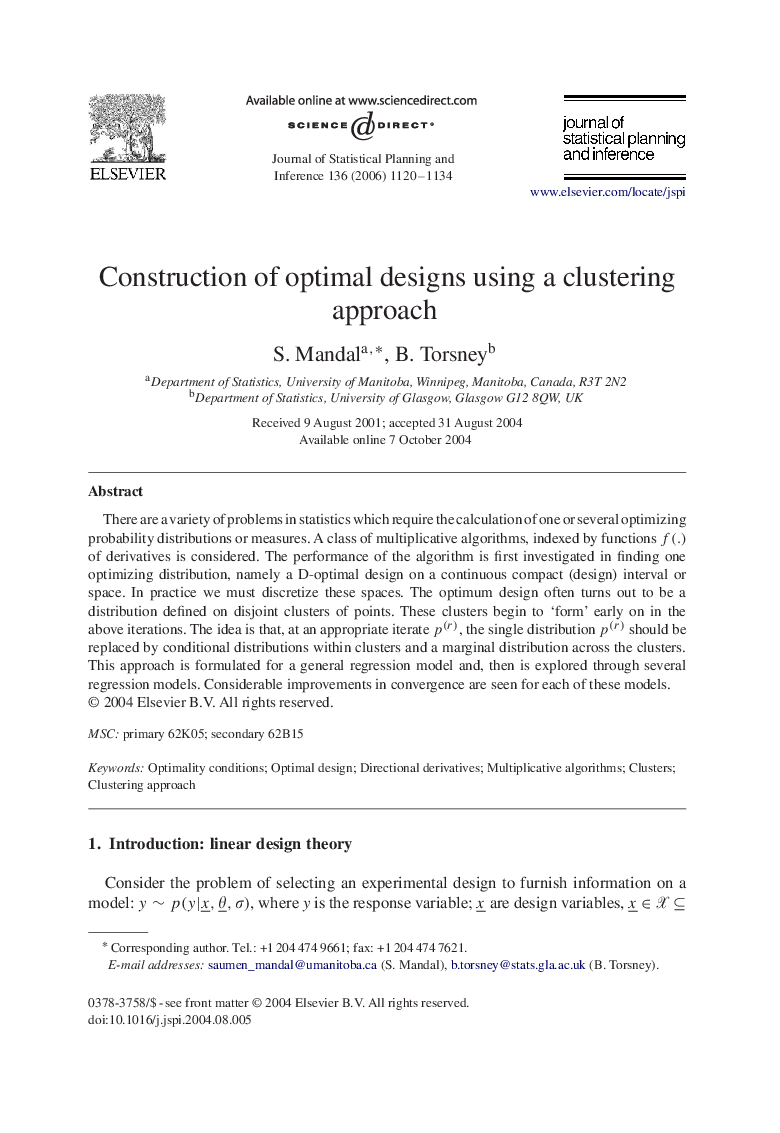| Article ID | Journal | Published Year | Pages | File Type |
|---|---|---|---|---|
| 1149067 | Journal of Statistical Planning and Inference | 2006 | 15 Pages |
Abstract
There are a variety of problems in statistics which require the calculation of one or several optimizing probability distributions or measures. A class of multiplicative algorithms, indexed by functions f(.) of derivatives is considered. The performance of the algorithm is first investigated in finding one optimizing distribution, namely a D-optimal design on a continuous compact (design) interval or space. In practice we must discretize these spaces. The optimum design often turns out to be a distribution defined on disjoint clusters of points. These clusters begin to 'form' early on in the above iterations. The idea is that, at an appropriate iterate p(r), the single distribution p(r) should be replaced by conditional distributions within clusters and a marginal distribution across the clusters. This approach is formulated for a general regression model and, then is explored through several regression models. Considerable improvements in convergence are seen for each of these models.
Keywords
Related Topics
Physical Sciences and Engineering
Mathematics
Applied Mathematics
Authors
S. Mandal, B. Torsney,
